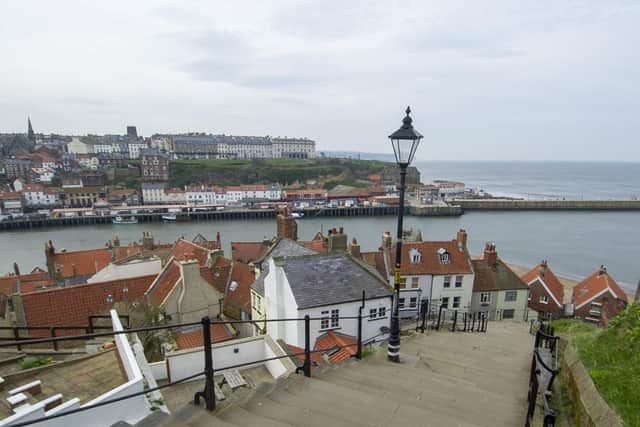These are the Yorkshire towns which have been the worst hit by lockdown
and live on Freeview channel 276
The Centre for Towns says new measures on top of those already announced will be needed to avoid the "initial shock" of the last month's lockdown from "turning into permanent damage".
And it lists the Yorkshire towns of Whitby and Ilkley as among those with the highest proportion of people employed in the worst-hit sectors of the economy.
Advertisement
Hide AdAdvertisement
Hide AdThe two towns have more people working in pubs or restaurants than anywhere else in the country, with 28.5 per cent of the workforce in Ilkley and 22.9 per cent in Whitby working in the shut-down sector.


The report comes amid warnings that an extended period of social distancing measures could cost a million jobs in the hospitality industry unless measures to protect businesses are put in place.
UKHospitality said pubs and other businesses would not be able to operate profitably if social distancing had to be observed.
The Centre for Towns report said the main four sectors affected by the Covid-19 shutdown were pubs and restaurants, accommodation, non-food retail and arts and leisure.
Advertisement
Hide AdAdvertisement
Hide AdNoting that the number of employees in these areas were not distributed evenly across the country, it reveals that in places like Newquay and Skegness more than half of all workers are in the affected sectors.
It adds: "COVID-19 is delivering an unprecedented economic shock, the full extent of which will not be clear for some time.
"The Government has recognised the negative economic consequences of its moves to suppress the virus to levels the health and care systems can cope with.
"Significant resources to try and mitigate the effect and preserve assets and jobs in the economy including a furlough scheme, a range of loans and support to different sizes of businesses and a mix of other grants, payments and payment holidays for both businesses, consumers, charities and the self-employed are of course welcome.
Advertisement
Hide AdAdvertisement
Hide Ad"Nevertheless, as the analysis in this report shows, additional interventions will be required to avoid the initial shock turning into permanent damage."
After a warning by chief medical adviser Professor Chris Whitty that social distancing measures could last beyond 2020, UKHospitality has written to Cabinet Office minister Michael Gove, recommending a plan to help the country's hospitality businesses reopen following the crisis and save jobs and businesses.
The letter stressed the need for a phased approach to avoid a "yo-yo effect" of openings and closings which could see businesses fail and up to a million jobs lost.
The six-point plan sets out the level of support the sector needs to reintegrate into the economy, to avoid mass redundancies and to ensure local businesses and high-street brands can survive.
Advertisement
Hide AdAdvertisement
Hide AdRecommendations included extending the Government's furlough scheme beyond the end of June for hospitality businesses, legislative intervention on rent payments, improved access to capital and an overhaul of business regulation.
UKHospitality chief executive Kate Nicholls said: "With social distancing measures still in place, reopening the hospitality sector without a plan would be catastrophic.
"The hospitality sector was one of the first hit by the crisis and the hardest hit in terms of lost revenue. It will also be one of the last to fully emerge from the lockdown."
The Centre for Towns, which has previously highlighted a growing gap in the rate of ageing between the population of towns and big cities, says the Government should urgently adopt a number of measures to protect towns.
Advertisement
Hide AdAdvertisement
Hide AdThis includes developing a programme of financial support that targets the most at-risk sectors which extends out throughout the likely duration of the pandemic.
The think-tank also urges Ministers to introduce skills retention and development programmes as soon as possible in the worst-hit areas.
And it says the Government should “engage with local cultural, leisure and sporting clubs to understand their funding requirements”.
